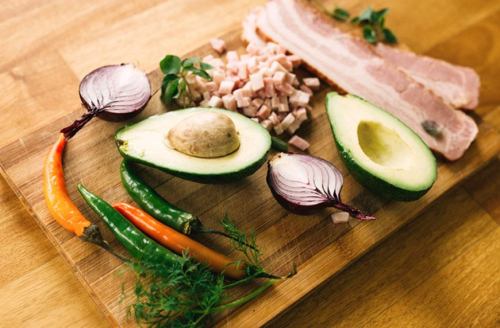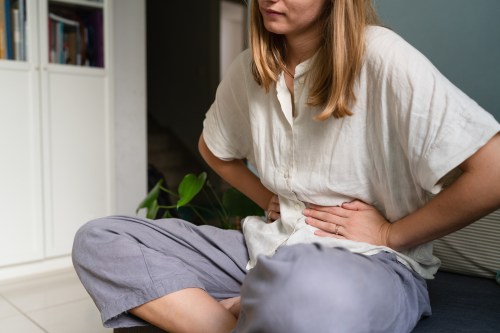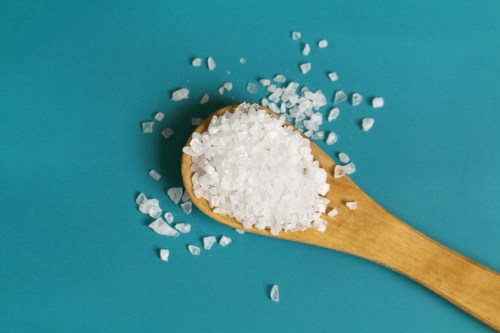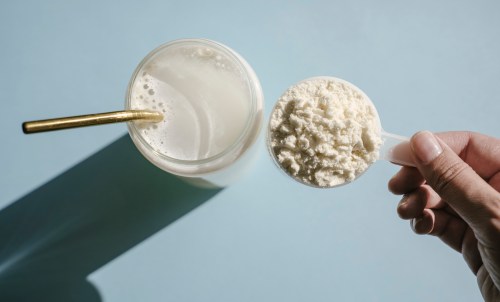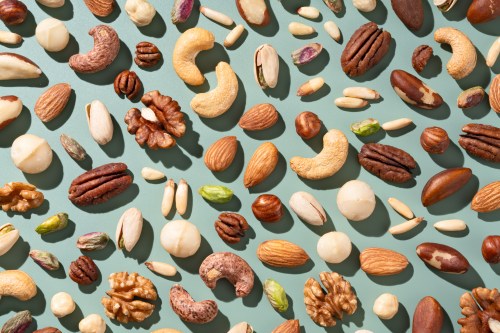Our editors independently select these products. Making a purchase through our links may earn Well+Good a commission
Though you’d hardly know it by talking to your most dietarily flighty friend—the one who switches to the latest craze without a second thought the moment she hears that, say, Halle Berry is on board—making major shifts in your eating habits is no small task.
For one thing, limiting or excluding food groups can cause your body to become deficient in key nutrients even as you initially feel better, lose weight, or experience whichever benefit is promised. The buzzy ketogenic diet and its narrow list of on-brand foods—high fat, low carbs—is no exception to this rule. So it’s important to realize that in order to switch to it (or any other restrictive diet) safely, you may need to add a few supplements to your regimen.
Not all experts I spoke to for this story, however, agree as to how diligent keto adherents need to be when it comes to added nutrients. On the “very diligent” end of the spectrum, Whitney English, RD, cautions that because the ketogenic diet limits vitamin- and mineral- rich foods, supplementation is critical. “A good multivitamin will make sure you’re covering all of your bases. However, many do not contain adequate calcium,” says the primarily plant-based dietitian. “Calcium is a major nutrient of concern in the keto diet as foods containing it—such as leafy greens, beans, and dairy—are limited.” English adds that vitamin D levels may also be of concern—and it’s worth noting that a lot of people are already lacking in this important nutrient.
Limiting or excluding food groups can cause your body to become deficient in key nutrients… The buzzy ketogenic diet and its narrow list of on-brand foods—high fat, low carbs—is no exception.
Meanwhile, nutrition expert Maria Emmerich, author of the book Keto: The Complete Guide to Success on the Ketogenic Diet, argues that if you’re following the diet correctly, you shouldn’t need additional supplementation. “A well-formulated ketogenic diet—adequate protein and good whole foods—is very nutrient-dense and won’t leave you with any deficiencies,” she says. “The only thing you have to supplement is sodium and maybe some magnesium, which most people are deficient in.” (That’s because the keto diet results in a loss of water weight, which can lead to low electrolyte levels and the dreaded keto flu.)
Finally, Taz Bhatia, MD, Author of Super Woman RX, takes gut health into consideration with respect to her keto supplement suggestion. “I would recommend a digestive enzyme with lipase/ox bile,” she says. “Some people have trouble digesting the amount of fat in a keto diet, so this may help.” She advises taking your digestive enzymes before or with meals (such as this keto-approved slow-cooker ratatouille).
But as always, remember that every body is different and it may be best to check in with a doctor or nutritionist as you transition to the high-fat lifestyle—they can help you figure out which supplementation style is right for you.
Supplements for keto diet:
- Rainbow Light Women’s One Multivitamin ($42)
- Rainbow Light Calcium, Magnesium, and Vitamin D Multivitamin Supplement ($13)
- Electrolyte Salts Rapid Oral Rehydration Replacement Pills ($20)
- Nature’s Bounty Magnesium ($10)
- Source Naturals Essential Enzymes ($20)
Getting bored with avocados on the keto diet? Here are 7 protein-packed snacks to help you bridge the gaps between meals. And if the low-carb lifestyle just isn’t working for you at all, you may want to try what’s known as “keto light” instead.
Sign Up for Our Daily Newsletter
Get all the latest in wellness, trends, food, fitness, beauty, and more delivered right to your inbox.
Got it, you've been added to our email list.
